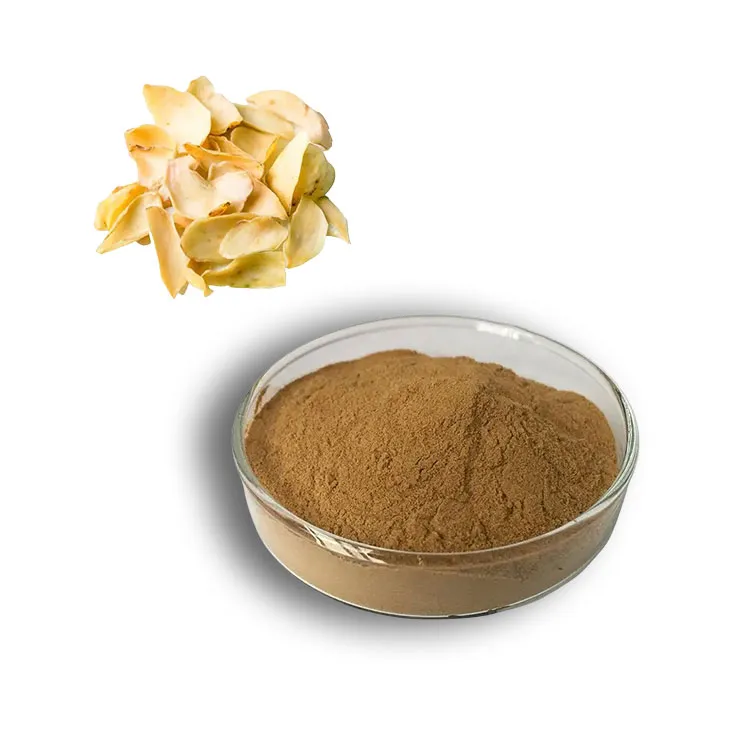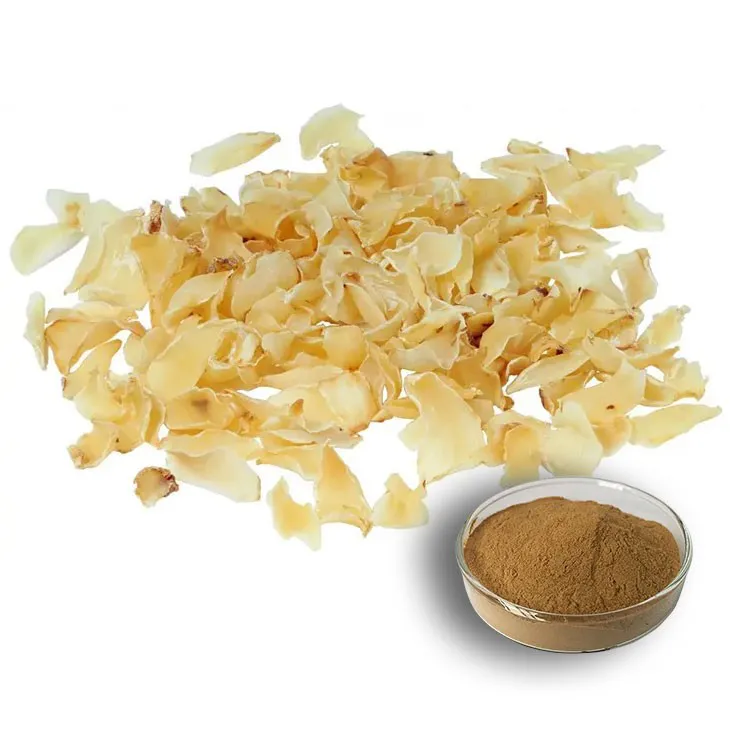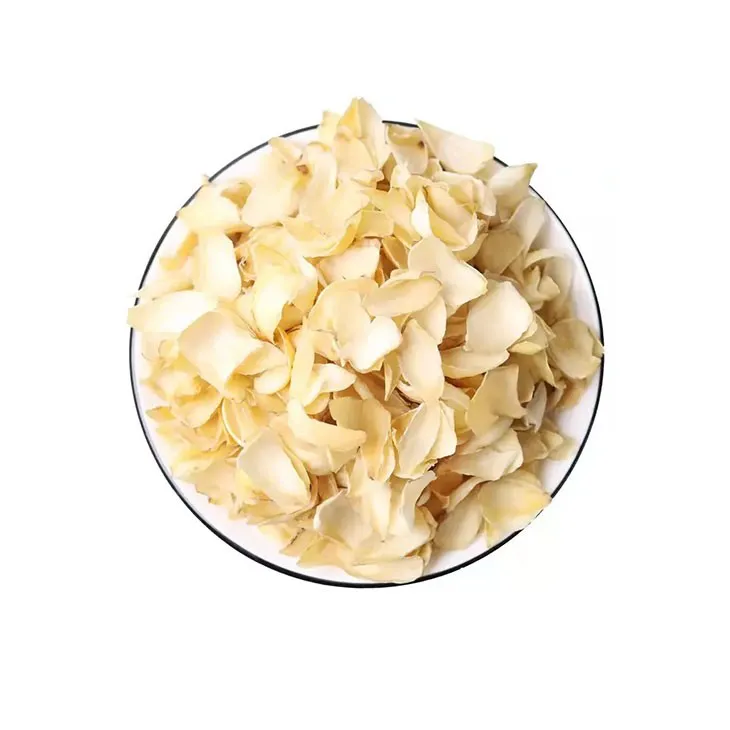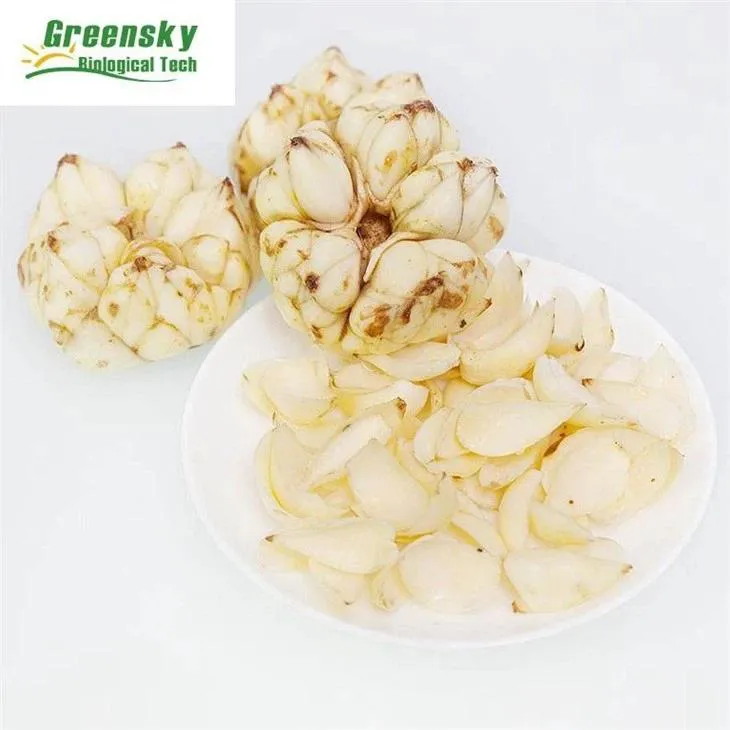- 0086-571-85302990
- sales@greenskybio.com
Lily extract: A botanical medicine for treating anxiety, insomnia, etc.
2024-11-12

Introduction
In the modern world, where the pace of life is accelerating at an unprecedented rate, anxiety and insomnia have emerged as two of the most prevalent health issues. People are constantly exposed to various stressors, such as work pressure, financial concerns, and social relationships. As a result, the demand for effective treatments for these conditions has been on the rise. One natural solution that has gained increasing attention is the Lily extract. This botanical medicine has shown great potential in alleviating anxiety and improving sleep quality.

The Active Ingredients in Lily extract
The efficacy of Lily extract in treating anxiety and insomnia can be attributed to its rich composition of active ingredients. These include various bioactive compounds such as alkaloids, flavonoids, and polysaccharides.
Alkaloids
Alkaloids present in lily extract are known to have significant physiological effects. They may interact with receptors in the body, potentially modulating neurotransmitter activity. For example, some alkaloids might have an affinity for receptors involved in the stress response system. By binding to these receptors, they could initiate a cascade of events that ultimately lead to a reduction in the body's overall stress level.
Flavonoids
Flavonoids are another important group of compounds in lily extract. They are well - known for their antioxidant properties. In the context of anxiety and insomnia, flavonoids may play a role in protecting the body's cells from oxidative stress. Oxidative stress has been implicated in the development of various mental health disorders, including anxiety. By reducing oxidative stress, flavonoids may contribute to a more stable physiological state, which is beneficial for reducing anxiety symptoms.
Polysaccharides
Polysaccharides in lily extract are thought to have immunomodulatory effects. A healthy immune system is crucial for overall well - being, and it may also be related to mental health. By modulating the immune system, polysaccharides could potentially influence the body's response to stress and, in turn, affect anxiety levels. Additionally, some studies suggest that polysaccharides may have a direct impact on the nervous system, although the exact mechanisms are still being investigated.

How Lily Extract Treats Anxiety
The mechanisms by which lily extract alleviates anxiety are complex and multi - faceted.
Cellular - Level Modulation of Stress Response
At the cellular level, lily extract may work by modulating the body's stress response mechanisms. The human body responds to stress through a complex network of hormonal and neural signals. When stressed, the body releases stress hormones such as cortisol. Prolonged elevation of cortisol levels can have negative impacts on mental health, contributing to anxiety. Lily extract may interfere with the pathways that regulate cortisol production. It could potentially down - regulate the genes or enzymes involved in cortisol synthesis, leading to a decrease in the production of this stress hormone. This, in turn, may result in a more relaxed state and a reduction in anxiety symptoms.
Neurotransmitter Regulation
Neurotransmitters play a crucial role in mood regulation and are closely associated with anxiety. Lily extract may influence the levels or activity of neurotransmitters such as serotonin, dopamine, and gamma - aminobutyric acid (GABA). Serotonin is often referred to as the "feel - good" neurotransmitter, and low levels of serotonin have been linked to anxiety disorders. Lily extract might enhance serotonin release or inhibit its reuptake, thereby increasing its availability in the synaptic cleft. Similarly, it could also affect dopamine and GABA levels, which are involved in the regulation of mood, motivation, and anxiety.

How Lily Extract Treats Insomnia
Lily extract has several potential mechanisms for treating insomnia.
Enhancing Melatonin Production
Melatonin is a hormone that plays a central role in the regulation of the sleep - wake cycle. It is produced by the pineal gland in the brain, and its levels typically increase in the evening, signaling the body to prepare for sleep. Lily extract may enhance the production of melatonin. This could be achieved through various means, such as modulating the activity of enzymes involved in melatonin synthesis or influencing the neural signals that regulate the pineal gland. By increasing melatonin levels, lily extract can help to reset the body's internal clock and improve sleep initiation and maintenance.
Acting on Sleep - Regulating Brain Regions
The brain has specific regions that are responsible for sleep regulation, such as the hypothalamus. Lily extract may act on these brain regions to promote sleep. It could interact with neurons in the hypothalamus, either directly or indirectly, to regulate the neural circuits involved in sleep - wake transitions. For example, it might modulate the activity of inhibitory or excitatory neurons in the hypothalamus, leading to a state more conducive to sleep. Additionally, lily extract may also affect other brain regions that are associated with relaxation and stress reduction, which can indirectly contribute to better sleep.

Benefits of Using Lily Extract as a Natural Remedy
There are several advantages to using lily extract as a natural remedy for anxiety and insomnia.
- Fewer Side Effects: Compared to many synthetic drugs used to treat anxiety and insomnia, lily extract is generally considered to have fewer side effects. Synthetic drugs often come with a range of unwanted side effects, such as drowsiness, dizziness, and dependency. Lily extract, being a natural product, is more likely to be well - tolerated by the body, although it is still important to use it under proper medical supervision.
- Holistic Approach: The use of lily extract aligns with the concept of holistic health. It targets not only the symptoms of anxiety and insomnia but also potentially addresses the underlying imbalances in the body. By working at a cellular and physiological level, it may contribute to overall well - being, rather than simply suppressing the symptoms. This holistic approach is becoming increasingly popular as people seek more comprehensive solutions to their health problems.
- Sustainable and Natural: Lily extract is derived from plants, making it a sustainable and natural option. In a world where environmental concerns are growing, choosing natural remedies over synthetic ones can be seen as a more environmentally friendly choice. Additionally, for those who prefer natural products in their healthcare regimens, lily extract offers a viable alternative.
Research and Clinical Evidence
While there is growing interest in lily extract as a treatment for anxiety and insomnia, it is important to consider the existing research and clinical evidence.
Pre - clinical Studies
Pre - clinical studies in animals have shown promising results. For example, in rodent models of anxiety, lily extract has been observed to reduce anxiety - like behaviors. These studies have also provided insights into the possible mechanisms of action, such as the modulation of neurotransmitter levels and stress hormone production. However, it should be noted that animal models may not fully replicate human physiology and behavior, so further research is needed to confirm these findings in humans.
Clinical Trials
Clinical trials in humans are still relatively limited. Some small - scale clinical trials have reported positive effects of lily extract on anxiety and insomnia symptoms. For instance, in a study involving a group of patients with mild to moderate anxiety, those who received lily extract supplementation showed a significant reduction in anxiety scores compared to the placebo group. Similarly, in a trial focused on insomnia, participants taking lily extract reported improved sleep quality. However, more large - scale, well - designed clinical trials are required to establish the efficacy and safety of lily extract definitively.
How to Use Lily Extract
When considering the use of lily extract for anxiety or insomnia, it is important to follow proper usage guidelines.
Forms of Lily Extract
Lily extract is available in various forms, including capsules, tablets, tinctures, and teas. Capsules and tablets are convenient options for those who prefer a more standardized dosage form. Tinctures are liquid extracts that can be diluted in water or other beverages and are often used for their faster absorption. Teas made from lily extract can also be a pleasant and natural way to consume the extract, although the concentration of active ingredients may be lower compared to other forms.
Dosage and Administration
The appropriate dosage of lily extract can vary depending on factors such as the individual's age, health status, and the severity of the condition being treated. It is recommended to start with a low dosage and gradually increase it if necessary, under the guidance of a healthcare professional. In general, for anxiety and insomnia, a typical starting dosage might be [X] milligrams per day, which can be adjusted based on the individual's response. It is also important to note that lily extract should not be used as a substitute for medical treatment without consulting a doctor, especially in cases of severe anxiety or insomnia.
Conclusion
In conclusion, lily extract shows great promise as a botanical medicine for the treatment of anxiety and insomnia. Its rich composition of active ingredients, along with its potential mechanisms of action at the cellular, hormonal, and neural levels, make it an interesting candidate for further research. While there is still a need for more comprehensive clinical trials to fully establish its efficacy and safety, the existing evidence, both pre - clinical and from small - scale clinical trials, suggests that it may offer a natural and holistic approach to managing these common health problems. As the demand for natural remedies continues to grow, lily extract could potentially play an important role in the future of healthcare for those suffering from anxiety and insomnia.
FAQ:
What are the main active ingredients in lily extract?
The lily extract contains various active ingredients, such as alkaloids, polysaccharides, and flavonoids. These components are believed to contribute to its potential effects on treating anxiety and insomnia.
Is lily extract safe for long - term use?
While lily extract is generally considered safe for most people when used appropriately, long - term use should be done under the guidance of a healthcare professional. Some individuals may experience side effects such as allergic reactions or digestive discomfort. Also, it's important to ensure that the lily extract is sourced from a reliable and uncontaminated origin.
How long does it take for lily extract to show its effects on anxiety and insomnia?
The time it takes for lily extract to show effects can vary from person to person. Some people may notice a difference in a few weeks, while for others, it may take longer. Factors such as the individual's overall health, the severity of the condition, and the dosage used can all influence the time frame.
Can lily extract be used in combination with other medications?
It is not advisable to combine lily extract with other medications without consulting a doctor first. There may be potential interactions that could affect the efficacy or safety of either the lily extract or the other medications. For example, it could interfere with the metabolism of certain drugs or enhance their side effects.
Are there any contraindications for using lily extract?
People with certain medical conditions, such as kidney or liver problems, may need to be cautious when using lily extract. Pregnant and breastfeeding women should also avoid using it without medical advice as there is not enough research on its safety in these situations. Additionally, those with known allergies to lilies should not use lily extract.
Related literature
- The Therapeutic Potential of Lily Extract in Neurological Disorders"
- "Lily - Based Botanicals: A Review of Their Role in Stress and Sleep Management"
- "Active Compounds in Lily Extract and Their Impact on Anxiety - Related Pathways"
- ▶ Hesperidin
- ▶ Citrus Bioflavonoids
- ▶ Plant Extract
- ▶ lycopene
- ▶ Diosmin
- ▶ Grape seed extract
- ▶ Sea buckthorn Juice Powder
- ▶ Fruit Juice Powder
- ▶ Hops Extract
- ▶ Artichoke Extract
- ▶ Mushroom extract
- ▶ Astaxanthin
- ▶ Green Tea Extract
- ▶ Curcumin
- ▶ Horse Chestnut Extract
- ▶ Other Product
- ▶ Boswellia Serrata Extract
- ▶ Resveratrol
- ▶ Marigold Extract
- ▶ Grape Leaf Extract
- ▶ New Product
- ▶ Aminolevulinic acid
- ▶ Cranberry Extract
- ▶ Red Yeast Rice
- ▶ Red Wine Extract
-
Angelica sinensis extract
2024-11-12
-
Curcumin Extract
2024-11-12
-
Phellodendron Extract
2024-11-12
-
Yellow Pine Extract
2024-11-12
-
Giant Knotweed Extract
2024-11-12
-
Epimedium extract powder
2024-11-12
-
Citrus Aurantii Extract
2024-11-12
-
Purple Sweet Potato Extract
2024-11-12
-
Rose Hip Extract
2024-11-12
-
Black Pepper Extract
2024-11-12





















